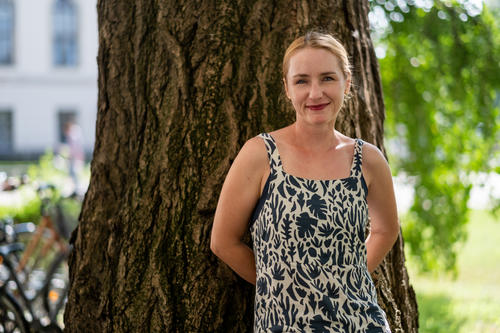“First I was a scientist, now I work for scientists”
Dr. Weronika Karle is a biologist. She earned her doctorate at Charité and worked as a postdoc in medical research there. It sounds like a typical scientific career – but at some point, Karle, a young scientist with two children of her own, started looking around for alternatives. She happened to run across the Job Shadowing Program operated by the Postdoc Academy. She applied and ended up discovering a whole range of new possibilities for her own career. Today, she works as a project coordinator in the area of promoting talent at the Berlin University Alliance. She reviews which of the programs offered are especially beneficial to researchers and what constitutes a good culture of supervision and support in science and academia.
Ms. Karle, when you participated in the BUA Job Shadowing Program, you spent a week shadowing a manager from the field of science, so you got to know what their job involves and what their day-to-day work is like. What prompted you to participate in the program, and what were your expectations?
Working conditions in the research sector aren’t easy, especially in the early stages of a person’s career. Contracts are always for a limited term, and the future is uncertain. Especially if you have a family, like I do, you need more job security. So, after a few years as a postdoc, I started wondering what else I could do aside from research, and began looking around for alternatives. Purely by chance, I happened on the BUA Job Shadowing Program. I was especially attracted to the field of scientific management and scientific coordination. I wanted to try it out – although I didn't have any major expectations. I was really curious, but I didn’t know exactly what spending a week as a job shadowee would actually be like.
Who was your host, and what was a typical day like during the shadowing process?
I shadowed Dr. med Anja Bondke Persson, Research Funding Coordinator at Charité. I got to tag along with her for a week and get to know the various things she does. It was a really varied experience, and I learned a lot about the work done behind the scenes, like how scholarships and prizes are awarded and what is really important in submitting a grant proposal or other application for funds. We’ve even stayed in touch afterward.
What experiences did you find especially valuable and memorable?
Networking is incredibly important. Building and maintaining networks is an important part of working in the sciences and the research sector. Just in the span of one week, I met so many people from many different fields. It was also hugely exciting for me to see how a committee reaches a shared decision. The process I have in mind had to do with awarding a prize, and I got to watch as the professors discussed which aspects were especially important to them, how they viewed the crucial questions from their perspective, and what is generally important in the case of presentations. I learned a lot from that, and it will be useful to me later on as well.
How did participating in the Job Shadowing Program influence your personal career?
I realized that I definitely did have the scope and ability to move out of the lab and take on a role outside of research. A lot of postdocs think they can’t do anything but research. But once you’ve spent years doing research, you also have so many important skills and so much experience in everything from logistics, management, and communication to writing, team leadership, and statistics. We are quick, independent problem solvers, and that’s something that can be useful and necessary in many other fields as well. The week I spent job shadowing gave me the courage to try something different and apply for jobs in academia but outside of research. So, you could say I switched sides: First I was a scientist, and now I work for scientists. It’s a good feeling.
The Job Shadowing Program is offered by the Postdoc Academy. It is one of various programs organized by the Berlin University Alliance to provide targeted career support to postdocs. Workshops, classes, networking meet-ups, and continuing and professional education programs are all opportunities for researchers to get to know their own strengths and cultivate the skills and expertise they need to meet their individual career objectives.

